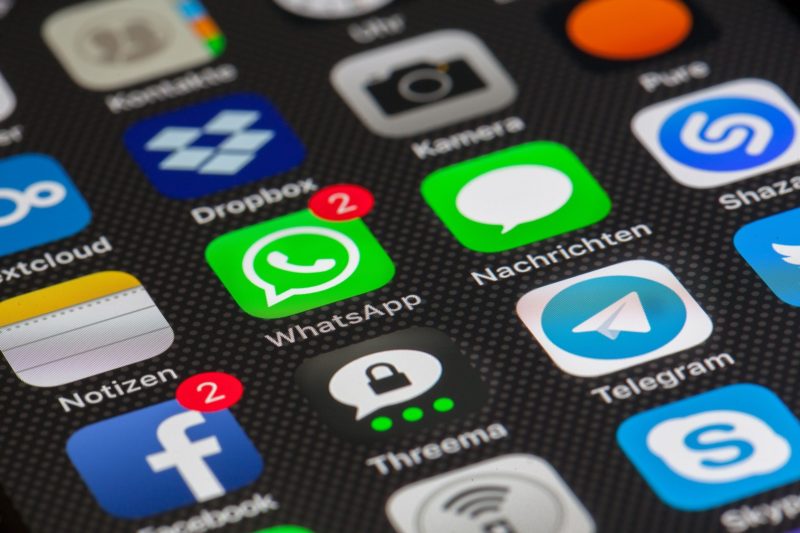With so many of them on the market, it can be impossible to find the best language learning apps.
Today, I want to help you to find which one will work best for you! Language learning apps can be a great way for people who don’t have a lot of time on their hands to learn a new language. They’re essentially a teacher in your pocket.
As many people may not have time for private tutors or online learning classes, we thought it valuable to analyze a handful of the top learning apps and to provide you with a short description of each.
Our core takeaway here is that there are a variety of great learning apps available. However, as you will see in the last review, we personally feel that Optilingo is the best value and quality of learning.
The History of Language Apps
Rosetta Stone
Many of you will probably remember your French or Spanish lessons from when you were at school. Your teacher would stand at the front of the class teaching, and everyone would either take notes or repeat back what you were told.

Now, how many of you remember anything you were taught at school? In all likelihood, not many of you.
In 1992, a new software came onto the scene, it was called Rosetta Stone, and it enabled people to learn a new language at their own pace, and in an environment which they could enjoy.
Did you know that the name “Rosetta Stone” comes from the name of the stone that allowed us to understand Egyptian hieroglyphics?
Duolingo
Of course, as great as Rosetta Stone is, the only issue with it was that you would have to pay. Many people are far more likely to do something if they don’t have to pay for it.
When you had French lessons at school, nobody expected you to have to pay for it. So, why should you have to pay to learn a language that you’re want to learn?
In 2010, Duolingo became the first free language app to come onto the market. Its creator said that he believed education ought to be free.
Ever since then, there has been an explosion of language apps on the market. Most of them are free and make their money entirely from advertising.
Of course, each app claims to be better than all the others. But every language app has its own unique niche. Some of them focus on the types of phrases you will use in the real world, others will be more centered around, making sure you have fun.
Perhaps in the future, there will be even more language apps, each with their own unique selling point.
Can You Really Learn a Language from an App?

Absolutely! For some reason, a lot of people have this idea that learning from an app is not real learning.
These people are under the impression that the only way to learn is by sitting in a classroom. But the data does not support this idea.
Open University
According to the Open University, one of the key reasons why learning from an app is so effective is that it provides you with an environment where you’re free to make mistakes. You don’t need to worry about your class laughing at you, and you won’t have your teacher having a word with you.
Language Apps Work
In that same study by the Open University, they found that 82% of respondents said that their knowledge of their chosen language had improved since they started using a language learning app.
So, it’s clear that when learning a new language, an app is a great way to do so.
What Makes a Language App the Best?
Easy to Use
You have chosen to download this app, and you should not have to work to learn from it. As soon as you click on the app, you should know how it works, and what you need to do to complete lessons.
Exciting Lessons
Just because you’re learning, does not mean that you should be made to feel like you’re back at school. When you learn through an app, the experience should be something you look forward to each day, not just something you feel obligated to do.
Useful for Your Language Goals
When you go to a foreign country, you aren’t going to spend the whole time talking about how your dad likes pizza, or your mom has a cat. A good language app will teach you the kinds of phrases that you might actually use if you were to ever visit a foreign country.
Helps You Understand (Not Just Know)
There’s a difference between knowing and understanding. You would probably be able to memorize an entirely foreign language dictionary and still not be able to have a conversation with a native speaker.
When you understand how a language works, you’ll be able to apply the rules when you discover new words and phrases.
Feedback on Lessons
In life, we all make mistakes. But when we make them, we don’t just want to be told that we’ve done something wrong, we want to know what we did wrong, and how we can avoid making the same mistake in the future.
A functional language app will tell you where you went wrong without making you feel guilty when you make a mistake.

The Best Language Apps: A Complete Comparison
#10 Fun Easy Learn
As the name suggests, Fun Easy Learn is based upon making learning fun and easy. This is the type of app that you can be excited about learning from.
You won’t be under any pressure, and you learn at your own speed. On this app, you will find a variety of tasks and challenges, all with the goal of helping you to become a better speaker of the language.
When you were a kid, you didn’t start off with Shakespeare, but as time went on, you learned new words until your vocabulary got better. Same approach here.
#9 Busuu
As we’ve already spoken about, as human beings, we will make mistakes when learning something new, whether that’s a new language or anything else.
And when we make mistakes, we want to be told where we went wrong, and we want to use this information to prevent us from making the same mistakes in the future.
Busuu has come up with an innovative solution to this problem. Instead of your mistakes being corrected by a computer, they’ll be corrected by a native speaker.
The speaker will explain to you where you went wrong in simple terms.
#8 Daily Dose of Language
In our lives, free time is not something that a lot of us have a lot of. When we get home from work, we have kids that we need to look after, and a whole variety of other things for us to focus on.
Finding the time to learn a new language is one of the key reasons why many of us don’t. But when you use Daily Dose of Language, the lessons you will find are 1 minute each.
So if you just have one spare minute a day, you can work towards speaking a new language.
#7 Rosetta Stone
Rosetta Stone is the OG of language apps. But even today, they still provide an excellent platform for you to be able to learn.
Rosetta Stone uses practical scenarios to teach you. Instead of teaching you about whether or not your brother likes bread, you’ll learn the types of phrases you might actually use. For example, what you might say in a job interview, how to ask for directions, that kind of thing.
Having been around since 1992, Rosetta Stone has had plenty of time to work on how they can improve themselves.
#6 Trip Lingo
One of the key reasons why you might want to learn another language is that you plan on traveling to another country.
Trip Lingo is made with these sorts of people in mind. The people behind this app created it with the sole aim of making things easier for people who like to travel a lot. On this app, you’ll find out how to order food, how to ask for directions, how to inform someone of an emergency.
Traveling really can broaden the mind, and knowing how to speak a foreign language can help you make the most out of your travels.

#5 Mango Languages
When you were at school, the three most common languages you spoke would have been Spanish, French, and German. And the reason for that is that these three languages are some of the most common.
However, there will be some people who wish to learn some not so common languages that most language apps won’t have. In this scenario, Mango Languages is the app for you!
Here, you’ll find the sorts of languages that most people have no need to learn, the kinds that are only spoken in a few parts of the world.
#4 Lingio
Two of the most effective methods of learning are quizzes and flashcards. Quizzes point out whenever you make mistakes, and narrow your options down when it’s multiple choice. Flashcards give you small amounts of information which are easier to memorize.
Lingio uses quizzes and flashcards to help you to learn a new language. Instead of having to do writing tasks, you can learn new phrases in a quick blast. You can absorb further information in a way that feels natural and doesn’t seem like you’re cramming a load of information in your brain
Learning should always be fun, and it always is with Lingio.
#3 Hello Talk
Hello Talk works slightly differently from all of the other apps on the market. On most of the apps, your teacher is an algorithm. But with Hello Talk, you are both student and a teacher.
On this app, you get the chance to talk to native speakers. This enables you to talk about the kinds of things that you would actually talk about in the real world, and not just pointless phrases.
It also allows you to dive right into the deep end. There isn’t much point in learning a new language if you can’t talk to a native.
#2 Duolingo
When most of us think of language learning apps, the first one that comes to mind is probably Duolingo. Many of you will know it best for having the owl who’s always keen to make sure you do your daily lesson.
On Duo Lingo, you work your way up through the levels. As you get better, the lessons get more demanding. They also have league tables to bring in a more competitive element into the game.
If you want to earn more points, they even have some stories for you to use to learn even more vocabulary.
#1 Optilingo
And finally, we have the one that I personally believe to be the best. Optilingo.
Let me ask you a question. When you learn a new language, what are you more interested in, being able to speak it, or being able to write it?
I’m not claiming that writing isn’t essential, but most of the time, we want to be able to talk to native speakers. On Optilingo, most of the learning is not done by writing, but by speaking.
One of the least effective ways to learn is to cram as much information in your mind as possible. You just get stressed, and you don’t remember anything. But with Optilingo, learning happens far more naturally.
When you can learn at your own pace, your chances of learning will go up by a lot.
As with the other language apps on this list, you won’t need to be anywhere at any particular time. You can learn on your own schedule. Learning a language in your own time, and at your own pace will allow you to become a more efficient learner.
And if you do make mistakes, there are no consequences. Mistakes are how we learn. There is no shame in making them.
Best Language Learning Apps for Kids

#5 Stories on the Go
When we were little, one of the most popular ways that we learned our language was through stories. Our parents would read stories to us before we went to bed.
We didn’t realize it at the time, but when they did so, they were teaching us about the way our language works and teaching us new words.
Stories on the Go use the same concept. With this app, children can learn a new language through stories. Not only will this give them the basics they need to be able to speak, but it will also teach them some new stories from different cultures.
#4 Little Pim
Little Pim uses a similar concept. Learn a new language through stories. But instead of having a load of disconnected stories, it’s one big story that’s split up into many shorter stories.
In the story, you can follow the adventures of Pim the Panda who teaches you all about new words in a new language.
Having someone else go through the journey with your children (even if that someone is a panda) is going to make them feel safer and give them the encouragement to learn the new language.
#3 Rosetta Stone Kids
As we’ve mentioned before, the OG of language apps is Rosetta Stone. But did you know they have a version of their app specially designed for children?
Learning a language is much easier when you’re young than it is when you get to my age, and Rosetta Stone understands this.
In their kid’s version, the learning is done through sounds. You can’t expect children to do a lot of writing in a new language, but you can expect them to say some new words and phrases. Having an app-based upon speaking is going to give them the tools they need to learn more about the language in the future.
#2 Learning by Mind Snacks
If you were to ask most kids if they enjoy school, most of them are going to say no. But if you ask those same kids if they like playing games, most of them will say yes.
Learning by Mindsnacks ditches the pens and paper and turns learning into a game. When you learn through playing games, the information is far more likely to stick in your mind, particularly when you’re at that age.
If you have a kid who struggles to learn but likes playing games, Learning by Mindsnacks is the app for them!
#1 Chinese Skill
One of the most commonly spoken languages in the world is Chinese. A lot of Americans immigrate to China so they can pursue new opportunities. And when you move to a new country, you will need to take your children with you.
No matter how old you are, when you live in a new country, you need to make an effort with the language.
Of course, you can send your children to an English speaking school, you will want them to be able to play with other children in the park, and be able to live independently one day.
Chinese Skill is a language app for children focused exclusively on Chinese.
What’s the Best Language App?
In 1992, Rosetta Stone came onto the market. At the time, they probably didn’t realize what they had started. In 2010, the first free language app came onto the market. Since then, there has been an explosion of new apps on the market. Some focus on a particular learning style, some cater to specific people, and some connect learners with natives. And there are also plenty of language apps that are designed to be used by children.
Whatever your reason is for wanting to learn a new language, using an app will remove the stress and pressure that a classroom brings, allowing you to learn at your own pace, and focus on what matters to you.
If you want to learn a new language, it’s no use just reading this article, you’ll need to download one of the hundreds of apps, the one I would recommend is Optilingo.
Optilingo allows you to learn naturally, with a heavy focus on speaking. Sign up now, and get learning!
Before long, you’ll be a fluent speaker!







